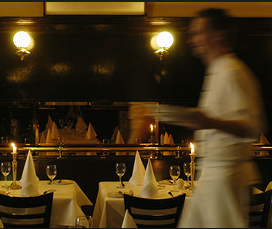30th
Sunday, Year C
•• Sirach
35:12-14, 16-18 •• Psalm 34 •• 2 Timothy 4:6-8, 16-18 •• Luke 18:9-14 ••
[__01a__] This is
a famous parable about prayer. In the
Catholic Catechism, we read that there are 3 principal - 3 main – parables about
prayer. All 3 are from the Gospel of Luke and we have heard all 3 in the last
few months.
1st is the parable of the importunate
friend, the friend arriving at midnight to ask for bread so that he may provide
food for unexpected guest.
2nd is the parable of last Sunday about the
widow beseeching the judge to hear her case favorably.
3rd is the parable we have just read about the
Pharisee and the tax collector (also known as the “Pharisee and the publican”)
[__01b__] Where
do I sign? Where do I sign, place my signature, my name?
This is a question you and I would ask after we have
made a commitment, or a decision.
Also this is the question you and I would ask if we
were to make a petition.
For example, to run for the U.S. Presidency, a person
needs to gather signatures on a petition. With a sufficient number of
signatures, a person would be on the ballot.
In California, to be on the presidential ballot, you
need 160,000 signatures. In Minnesota, only 2,000. And, so once, you have signatures and are on
the presidential ballot in all 50 states, you are a candidate. The signature is
important.
Where do I sign?
[__02__] This is
the question we are asked by someone from whom we receive approval, permission,
favor.
Where do I sign?
[__03__] Need a
lease on a car? Where do we sign?
Need to be excused from class or from a midterm due to travel? Where does the professor sign?
[__04__] We sign our names – personally – asking for
things that we need.
[__05__] In the Gospel this Sunday, we read a parable
about the 2 persons (2 men) who went up to the Temple to pray.
First is the Pharisee. Second is the tax collector.
[__06__] The Pharisee does not want to sign anything,
believing all his documents and
paperwork are in perfect order.
The Pharisee does not make any petitions before God.
The Pharisee does not ask for anything, but just tells
God how great his transcript and application are. Even his signature is
flawless.
[__07__] Second, at the Temple is the tax collector
(publican). The tax collector, in all humility, has his pen and ink ready with
prayer petitions.
“Where do I sign?” He wants to know.
[__08__] Tax
collectors are known to us, through the Bible as notoriously selfish
individuals. The Jewish people regarded the tax collectors with contempt, with
disdain.
According to the Jewish community, their “tax
collectors” (many of whom were Jewish) had signed away the inheritance. They
had signed
away the promised land to the Roman Empire.
Tax collectors were Jewish themselves and were working
for the Roman Empire. They were cheating their own family.
One would have to wonder if the signature of a tax
collector is worth much.
The Pharisee would question the value of the tax
collector’s autograph … not because the tax collector is not famous…but because
the tax collector is infamous in his cheating.
[__09__] What is
my signature – my word – my promise worth?
Isn’t this the same question for all of us in turning
our hearts back to God … or in making a repentance or reparation.
That is, yes, we have been dishonest or selfish in some
way or at some time.
[__10__] The tax collector goes before God seeking
forgiveness and brings a petition, a petition to be signed.
We might say that the tax collector gives us an example
to follow in Sacrament of Penance and Reconciliation.
This sacrament in its repentance and forgiveness – is
also a petition.
[__11__] In the sacrament of penance and
reconciliation, we are also making a request and petition – but it is different
from some petitions with which we are familiar.
For example, if we were to run for U.S. President, we would
need a petition with signatures – state by state, Michigan and Minnesota, Colorado
and California.
We would need a campaign, publicity…
Also if I want to obtain more financial aid, then I write the petition, I write up the details, the plan.
We would need a strategy, a calculation.
[__12__] In the confession of our sins, we do not come
before God with a campaign slogan or a strategy complete.
Rather, in our petition, we are asking the Lord to fill
in some of these details.
This is true also in the sacrament of penance.
In the confession of our sins, we make this petition,
asking the Lord to give us greater awareness of God’s justice, fairness.
[__13__] Receiving
forgiveness, absolution and peace, we are trying to grow by becoming aware of
our desire to follow God’s ways – even if we do not always succeed.
In the confession of our sins, we are aware of the
difference between God’s ways and our ways. For example, we realize that we
might have found to be “justified” …might really be unjust.
Or what we promised – signing our name to – we realize
that maybe we did not keep our end of the agreement / relationship.
And, in these cases – asking for forgiveness, we are
asking, with an open heart … where do we sign?
[__fin__]



